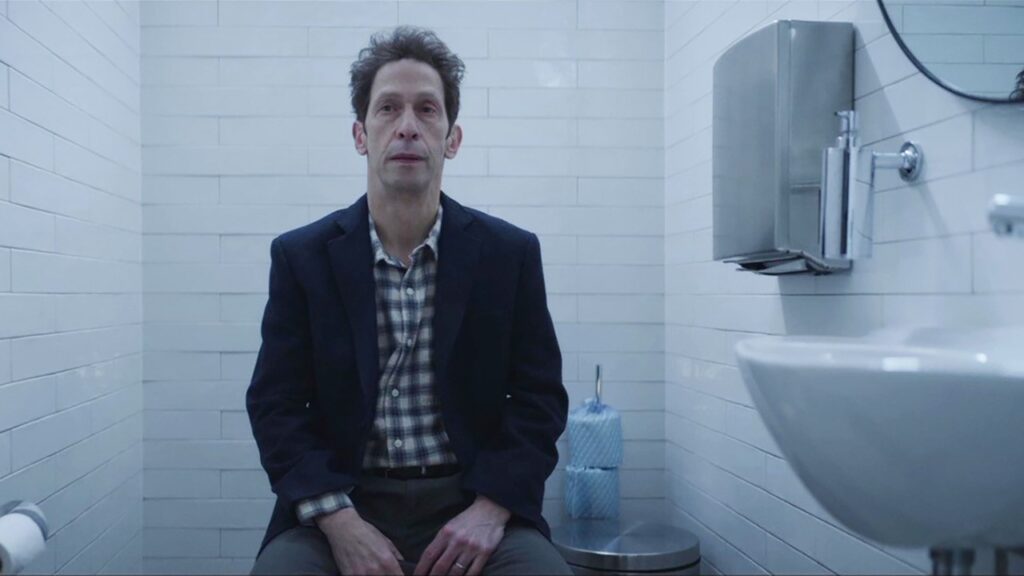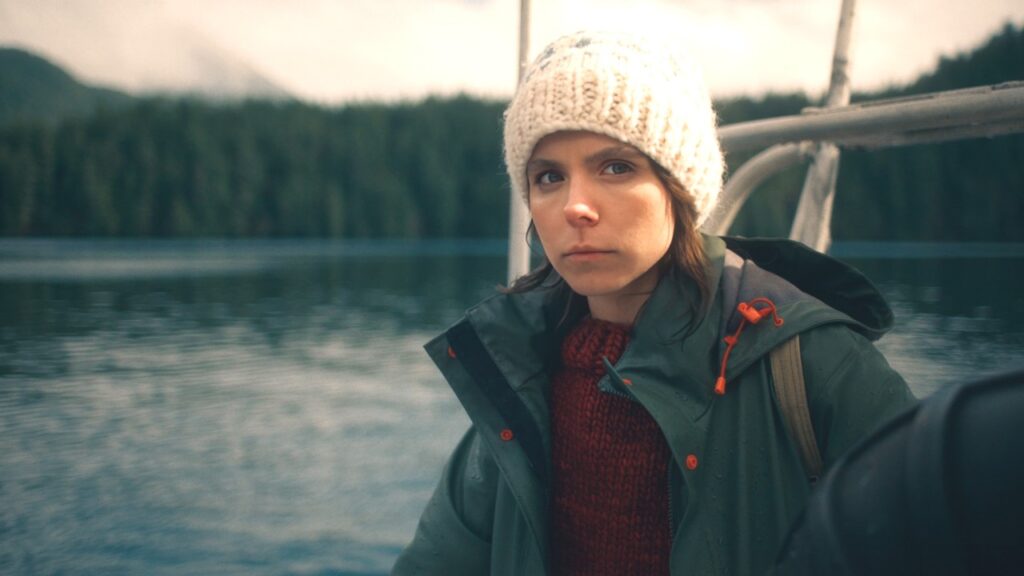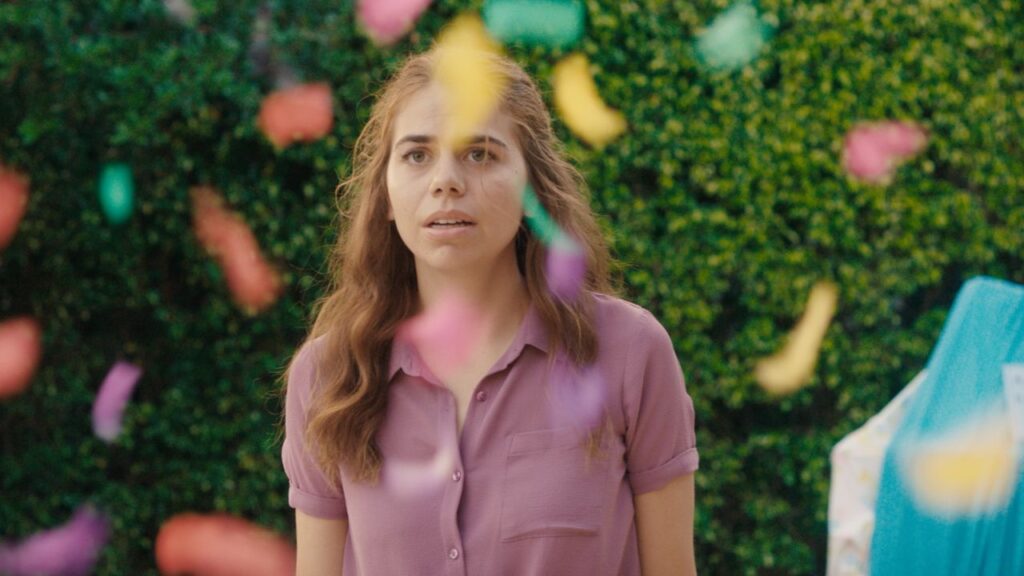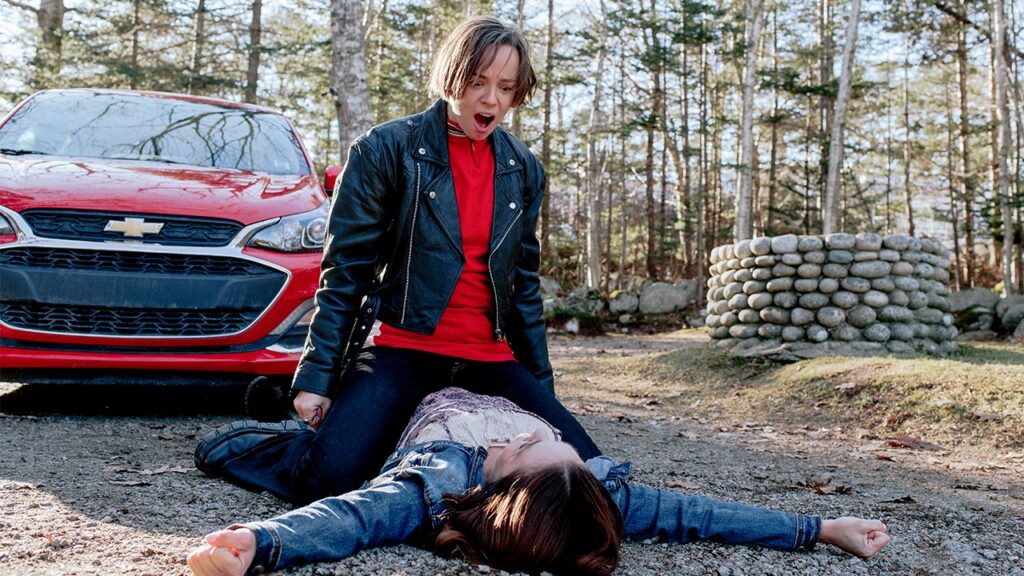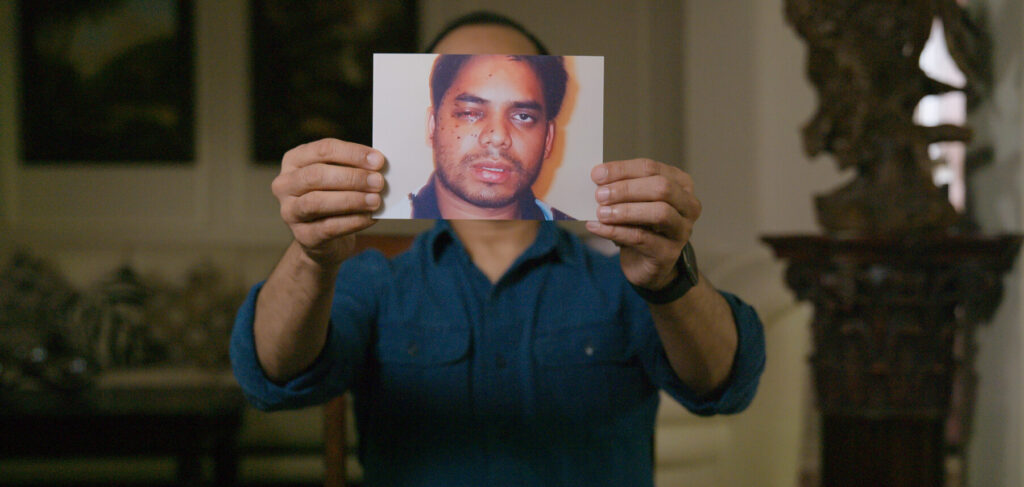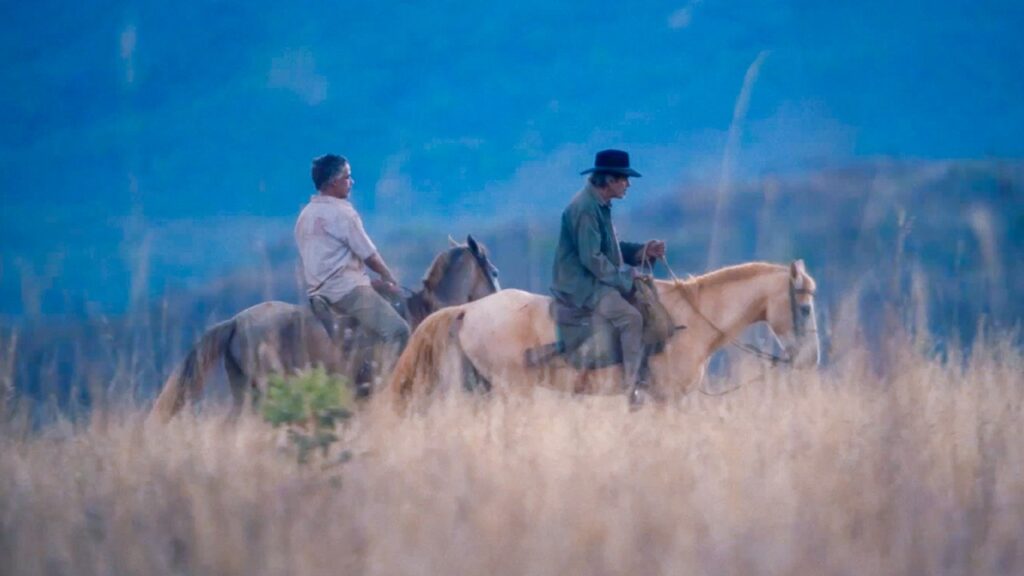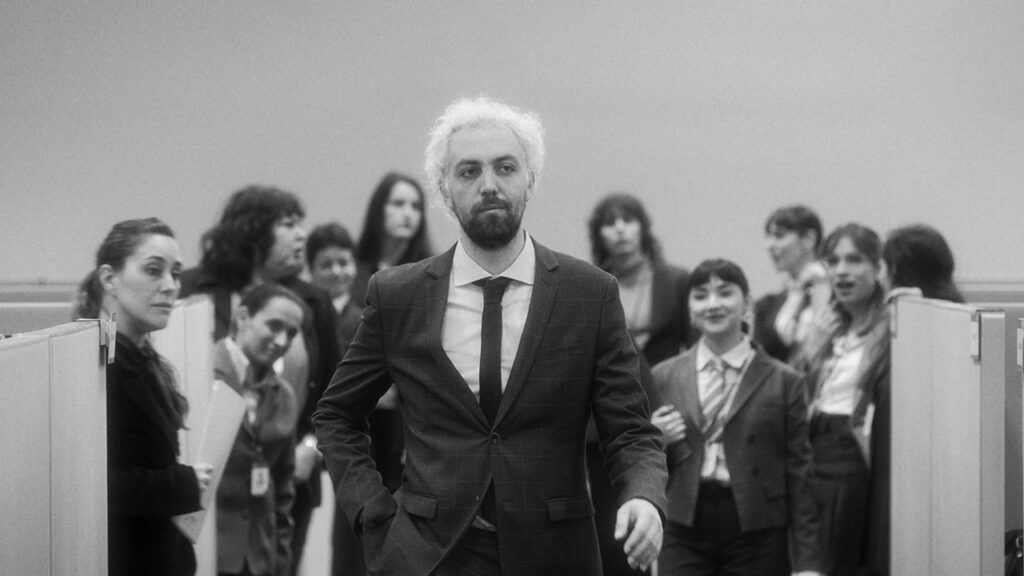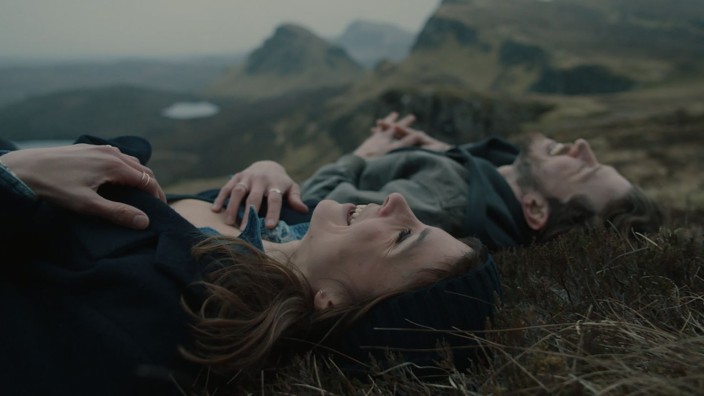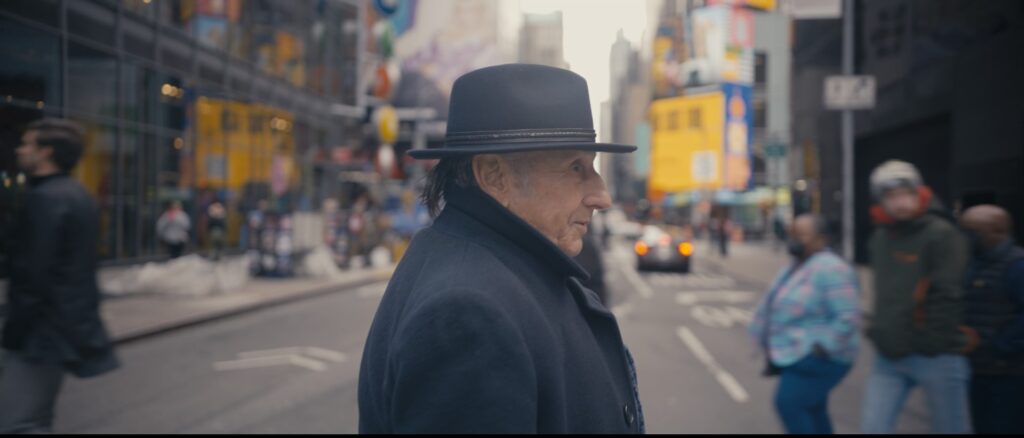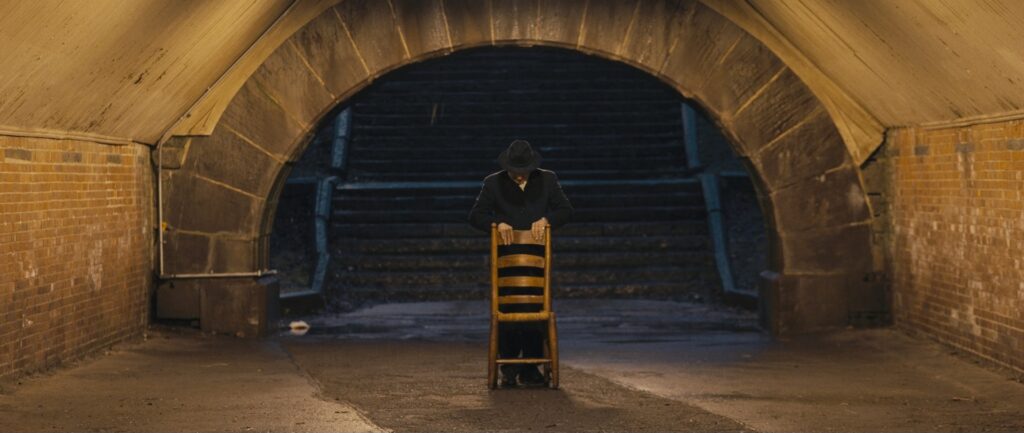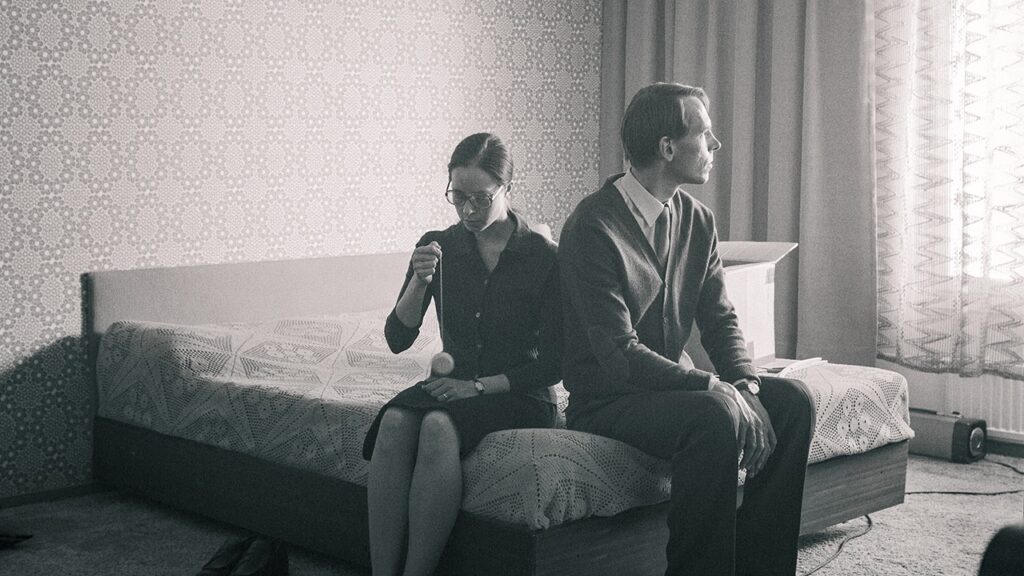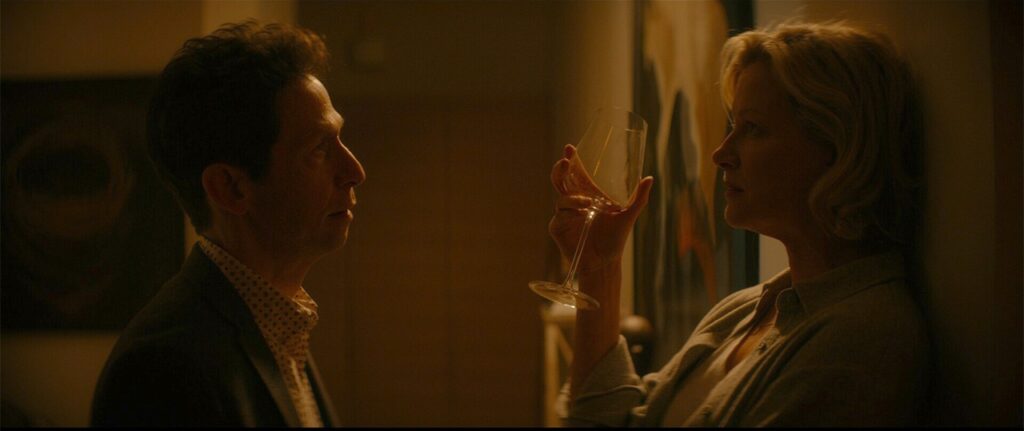
In the engrossing dramatic parable The Invisibles, Charlie (Tim Blake Nelson) has become so disengaged from his job and his marriage that he becomes invisible – at first metaphorically and then literally – to those around him. Charlie is finding this disturbing enough, but then he happens on an entire community of invisible people like him in a parallel dimension. Can they return to the world of the visible? And do they want to?
The invisibles hang out together in a decrepit bowling alley, led by Carl the affable bartender (Bruce Greenwood). Charlie learns that the invisibles have each experienced a loss, a disappointment or a betrayal so devastating that they have each given up on life in some way. But there’s no more emotional pain in the invisible world, and the bowling alley is a hub of merrymaking.
Charlie and his wife Hannah (Gretchen Mol) have suffered a grievous loss; Hannah has been working hard to recover, but the grief has paralyzed Charlie into a toxic mire of denial, avoidance and apathy.
As Charlie finds himself torn between his love for his wife and the comfort of the invisible world, The Invisibles explores the how people react to the pain of loss and the painful process of getting beyond it. The ingenious metaphor of the parallel universes is the creation of writer-director Andrew Currie. He wrote and directed Fido, one of my Zombie Movies for People Who Don’t Like Zombie Movies.
Tim Blake Nelson is an acting treasure, and he’s at the top of his game here. Mol and Greenwood are excellent, too, as is Nathan Alexis as one of the invisibles.
Cinequest hosted the world premiere of The Invisibles today and will present a second screening tomorrow, March 11. The Invisibles is highlighted as one of two Must See films in my Best of Cinequest.
